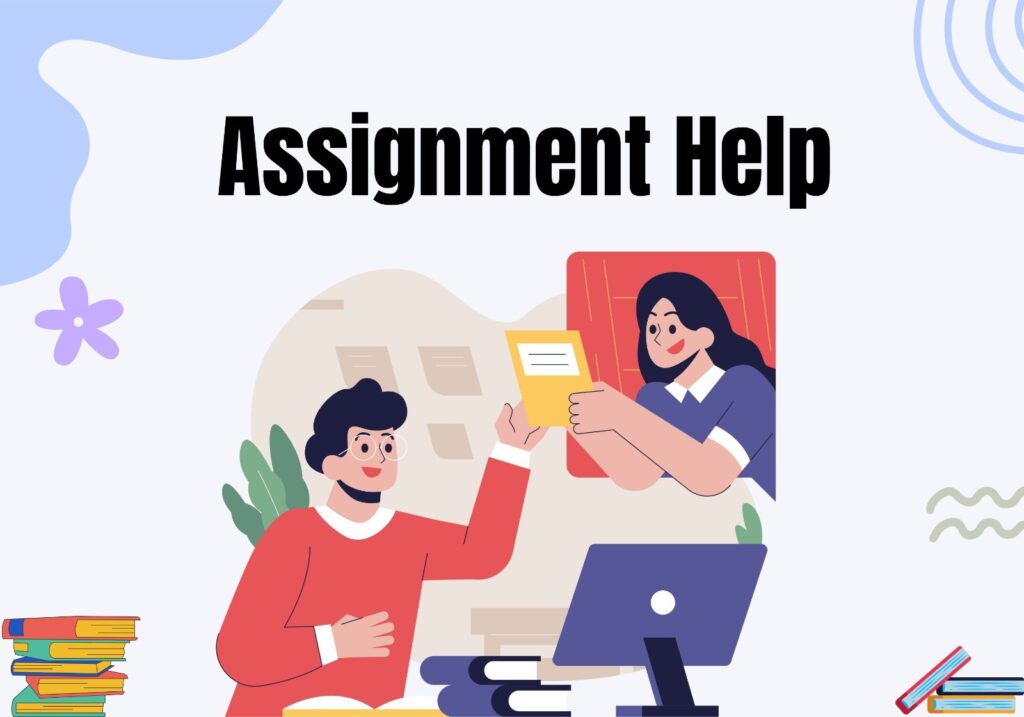Did you know that sponsoring a family member for an Australian family visa creates legally binding obligations that can last for years?Many Australians begin the sponsorship process without fully understanding the significant legal responsibilities they’re undertaking.
When you apply for a family sponsorship visa in Australia, you’re entering into a formal agreement with the government, one that carries significant legal and financial responsibilities. The Department of Home Affairs places strict obligations on sponsors to ensure the well-being of visa applicants and uphold the integrity of Australia’s immigration system. Failing to fulfill these duties can result in serious consequences, including financial penalties and restrictions on future sponsorship opportunities.
This guide examines the legal framework surrounding family visa sponsorship in Australia, outlining your core responsibilities as a sponsor and the potential consequences of non-compliance. You’ll discover the various types of family visas available, the specific obligations associated with each sponsorship role, and practical strategies to ensure you meet all legal requirements throughout the sponsorship period.
Please Note: This article serves as a general guide to help you understand the topic, with information accurate as of the publication date. We recommend consulting a registered migration agent or check The Department of Home Affairs for precise, up-to-date guidance tailored to your specific circumstances
Types of Australian Family Visas and Sponsorship Roles
Australia’s family visa program is structured to reunite loved ones while ensuring applicants and their sponsors meet strict criteria. Each visa type reflects a different relationship and comes with unique expectations. Choosing the correct visa isn’t just a procedural step; it defines your responsibilities as a sponsor from day one.
Partner Visas
The Partner visa allows Australian citizens and permanent residents to sponsor their spouse or de facto partner. There are two main subclasses:
- Subclass 820 (Temporary) – For applicants already in Australia. It lets your partner live, work, and study while the permanent visa is processed.
- Subclass 801 (Permanent) – Applied for alongside the temporary subclass 820, granted later if the relationship continues to meet requirements.
- Subclass 309 (Temporary) – For applicants outside Australia. Allows entry and stay while the permanent stage is assessed.
- Subclass 100 (Permanent) – Granted to applicants who continue to meet the eligibility criteria after holding the subclass 309.
As a sponsor, you must:
- Provide financial support and suitable accommodation.
- Help your partner settle during their initial two years in Australia.
- Notify the Department of Home Affairs about any significant changes in your relationship or living situation.
These visas also require evidence of a genuine, ongoing relationship, such as shared finances, household arrangements, and social recognition.
Parent Visas
Sponsoring your parents involves deeper financial and legal commitments. You’ll likely need to sign an Assurance of Support, which includes:
- A legally binding financial commitment, often lasting up to 10 years.
- Responsibility for repaying any social security payments claimed by your parents during that period.
Several visa subclasses fall under this category:
- Subclass 103 (Parent Visa) – A permanent visa for parents of settled Australian citizens or permanent residents. Processing times can be extensive.
- Subclass 143 (Contributory Parent Visa) – Offers faster processing in exchange for a higher application fee.
- Subclass 173 (Contributory Parent Temporary Visa) – Allows temporary stay as a pathway to the permanent subclass 143.
- Subclass 804 (Aged Parent Visa) – For parents of pension age who are in Australia at the time of application.
- Subclass 884 and 864 (Contributory Aged Parent Visas) – Similar to 173 and 143 but tailored for aged parents.
These visas also come with long processing times and may require a substantial financial bond.
Child Visas
To sponsor a dependent child, you must demonstrate your ability to provide full-time care and support. This includes:
- Access to schooling and healthcare.
- A stable living environment.
- Legal guardianship or consent, where applicable.
There are several child visa subclasses, each catering to different family situations:
- Subclass 101 (Child Visa – Offshore) – For dependent children of Australian citizens, permanent residents, or eligible New Zealand citizens applying from outside Australia.
- Subclass 802 (Child Visa – Onshore) – For children applying from within Australia.
- Subclass 445 (Dependent Child Visa) – A temporary visa for children whose parent holds a temporary partner visa and is awaiting the outcome of their permanent partner visa.
While child visas are generally more straightforward, they still require careful documentation to demonstrate dependency, custody arrangements, and eligibility.
Other Family Visas
Visas for extended family, such as orphan relatives, elderly parents, or siblings, are more limited and heavily scrutinized. You may be required to:
- Prove a close, ongoing relationship.
- Show you’re the only remaining family able to provide care.
- Demonstrate long-term financial and emotional support.
The main subclasses under this category include:
- Remaining Relative Visa (Subclass 115 and 835): For individuals whose only near relatives are living in Australia.
- Aged Dependent Relative Visa (Subclass 114 and 838): For elderly relatives who are financially dependent on an Australian citizen or permanent resident.
- Orphan Relative Visa (Subclass 117 and 837): For children under 18 with no living parents who can care for them.
Each subclass has specific eligibility conditions and evidentiary requirements, making it essential to approach the application process with accurate documentation and legal insight.
Sponsorship Responsibilities
Regardless of the visa, being a sponsor entails accepting significant responsibilities. The Australian government holds sponsors accountable to:
- Prevent visa holders from relying on public welfare.
- Maintain open and accurate communication with immigration authorities.
- Fulfil financial and social support commitments for the duration of the visa.
Before You Apply
Take the time to assess your readiness. Ask yourself:
- Can I support another person financially for several years?
- Am I prepared for the documentation and follow-ups involved?
- Do I understand my legal responsibilities under the family sponsorship visa Australia program?
Sponsorship is a powerful way to bring loved ones closer, but it also carries real consequences. Making an informed choice ensures you’re prepared for both the opportunity and the responsibility. To understand what’s expected of you beyond the application stage, it’s essential to get familiar with the legal duties tied to your role.
Core Legal Obligations of Family Visa Sponsors
Sponsoring a family member under an Australian family visa entails significant legal responsibilities, which extend well beyond the initial application process. These obligations are in place to ensure that sponsored individuals are supported and to maintain the integrity of Australia’s immigration system.
1. Financial Responsibility
One of your primary duties is to prevent your sponsored family member from relying on government assistance. You’ll need to show proof of stable income and assets to meet this requirement.
2. Providing Suitable Accommodation
Sponsors are expected to provide adequate housing that meets Australian health and safety standards. This includes:
- Ensuring a safe, clean living environment.
- Providing private or shared space as appropriate for the relationship.
- Maintaining housing stability during the sponsorship period.
Failure to meet this obligation can impact both visa approval and post-arrival compliance checks.
3. Reporting Changes to the Department
You’re legally required to keep the Department of Home Affairs informed of any significant changes, such as:
- A breakup or separation in the case of partner visas.
- Changes in address or living arrangements.
- Significant changes to your financial situation.
- Extended absences or travel plans that affect your ability to sponsor.
Timely reporting is critical, as omissions can lead to penalties or jeopardise the visa status of your family member.
4. Relationship Verification (Partner Visas)
If you’re sponsoring a partner, your relationship must be genuine and continuing. The Department may:
- Request joint financial or residential documentation
- Interview both partners
- Monitor changes in your relationship over time
Maintaining consistent records, such as shared bank statements, lease agreements, or travel history, can support your case.
5. Child Welfare Obligations (Child Visas)
When sponsoring a child, you are responsible for:
- Enrolling them in school.
- Ensuring access to healthcare services.
- Providing day-to-day care, safety, and emotional support.
These responsibilities continue until the child reaches adulthood or the visa terms expire.
6. Duration and Compliance
Obligations generally last between two and ten years, depending on the visa subclass. Throughout this period:
- The government may conduct random checks.
- You may need to provide updated financial or housing evidence.
- Non-compliance can lead to visa cancellation, future sponsorship bans, or fines.
Sponsorship rules are becoming stricter, especially around financial stability and character checks. Before taking on this role, it’s essential to understand how these responsibilities are applied in real-world situations, not just on paper. What happens if you fall short? What if you don’t report a change?
Let’s examine what happens when sponsors fail to fulfill their obligations.
Monitoring, Breaches, and Legal Consequences
Once your sponsorship is approved, the commitment doesn’t end. The Australian government closely monitors these arrangements to ensure sponsors fulfill their obligations.
How Monitoring Works
The Department of Home Affairs may:
- Conduct site visits or request updated documentation.
- Interview sponsors or visa holders.
- Cross-check financial or living arrangement details.
These checks can happen at any time during the sponsorship period and aren’t always pre-announced.
Common Sponsorship Breaches
Failing to meet your obligations, intentionally or otherwise, can lead to serious consequences. Breaches often include:
- Not providing financial or housing support.
- Giving false or incomplete information in your application.
- Ignoring changes in your circumstances, like separation or relocation.
- Withdrawing support without notifying authorities.
What Happens If You Breach
If a breach is detected, the Department may:
- Issue formal warnings or demand corrective action.
- Impose financial penalties.
- Cancel your sponsorship agreement, which will impact the visa holder’s status.
- Restrict your ability to sponsor others for up to five years.
In more severe cases, it can permanently flag your immigration record, making future visa applications more difficult, even if unrelated to the original case.
Sponsorship isn’t symbolic; it’s a legally binding responsibility. Failing to uphold your role has real consequences, both for you and for the person you’ve sponsored.
Getting Sponsorship Right from the Start
Family sponsorship under Australia’s visa system is a legal agreement with long-term obligations; not just a gesture of support. It requires financial planning, personal accountability, and a thorough understanding of what is expected over two to ten years, depending on the visa type.
Many sponsors encounter difficulties not because they intend to neglect their role, but because they underestimate the legal and practical responsibilities that come with it. At Knowbal, we’ve seen how easy it is to overlook critical details without expert guidance. Staying informed, organised, and proactive, with the right support, can help you avoid costly mistakes and ensure your loved one’s journey is as smooth as possible.
The system is designed to safeguard both the sponsor and the sponsored family member. But it only works when approached with seriousness and clarity.
If you have questions or want help understanding your responsibilities, contact us. We’re here to guide you through each step of your sponsorship journey.



